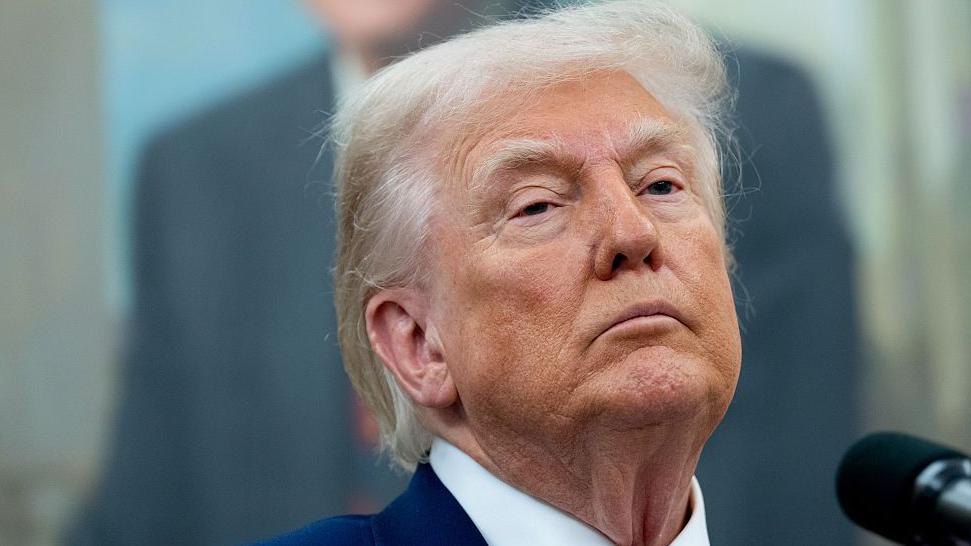Simon Jack: Tariff relief for UK but new clock ticking on US deal

- Published
It is hard to argue the UK exemption from the doubling of US tariffs on imported steel from 25 to 50% is not good news.
It was not a given that the UK would get this carve-out despite having done a deal on 8 May to reduce tariffs on the metals to zero.
That agreement is not yet in force, however, and speaking to steel industry leaders and government officials right up until Tuesday night's announcement, their working assumption was that the UK would be in the same boat as everyone else - facing tariffs of 50% until that deal was finalised.
There was a palpable sense of relief from UK trade officials when the exemption was included in President Donald Trump's latest executive order.
What is in the UK-US tariff deal?
- Published17 June
What tariffs has Trump announced and why?
- Published4 days ago
Up until that point, the UK government didn't actually know whether it would receive special treatment. It found out the same time everyone else did, and managed to avoid what would have been a somewhat diplomatically embarrassing episode after hailing the tariff pact as "historic".
Having said that there is now a new clock ticking. Tuesday's announcement contained a provision that if the deal is not finalised by 9 July, the UK's steel tariff rate would be hiked to 50%.
So now you have an uncertain period when businesses on both sides of the Atlantic don't know if the tariff will be zero or 50% in five weeks' time - which anecdotally is having a corrosive effect on business.
There is no reason to assume the deal won't come into force. The government said that Business Secretary Jonathan Reynolds and US Trade Representative Jamieson Greer agreed that both would work faster so customers in US and UK benefit from the agreement.
However, there is a second-order effect - that international steel earmarked for the US could now be diverted to the UK and create a glut of the metal and undercut domestic steelmakers.
The industry has been quick to voice such concerns and wants the government to implement barriers of its own to prevent that.
The UK exemption and ultimate deal is not a free lunch. The UK government agreed to cut tariffs cut on some US beef products and ethanol - a renewable fuel made from crops. It has created a crisis in the UK ethanol market, which in turn is a big customer of wheat farmers.
It is possible that UK efforts to protect these industries could be viewed by the US as backsliding on the deal they struck with the UK.
It's a reminder that these deals have complex and sometimes underestimated knock on effects.